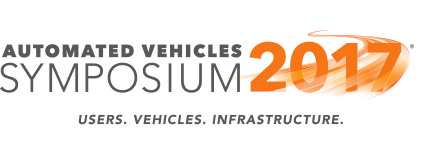E-mail is more secure than we think, we should use it
Submitted by brad on Thu, 2017-08-17 16:04E-mail is facing a decline. This is something I lament, and I plan to write more about that general problem, but today I want to point out something that is true, but usually not recognized. Namely that E-mail today is often secure in transit, and we can make better use of that and improve it.
The right way to secure any messaging service is end-to-end. That means that only the endpoints -- ie. your mail client -- have the keys and encrypt or decrypt the message. It's impossible, if the crypto works, for anybody along the path, including the operators of the mail servers as well as the pipes, to decode anything but the target address of your message.
We could have built an end-to-end secure E-mail system. I even proposed just how to do it over a decade ago and I still think we should do what I proposed and more. But we didn't.
 Along the way, though, we have mostly secured the individual links an E-mail follows. Most mail servers use encrypted SMTP over TLS when exchanging mail. The major web-mail programs like Gmail use encrypted HTTPS web sessions for reading it. The IMAP and POP servers generally support encrypted connections with clients. My own server supports only IMAPS and never IMAP or POP, and there are others like that.
Along the way, though, we have mostly secured the individual links an E-mail follows. Most mail servers use encrypted SMTP over TLS when exchanging mail. The major web-mail programs like Gmail use encrypted HTTPS web sessions for reading it. The IMAP and POP servers generally support encrypted connections with clients. My own server supports only IMAPS and never IMAP or POP, and there are others like that.
What this means is that if I send a message to you on Gmail, while my SMTP proxy and Google can read that message, nobody tapping the wire can. Governments and possibly attackers can get into those servers and read that E-mail, but it's not an easy thing to do. This is not perfect, but it's actually pretty useful, and could be more useful.







 Level zero is just the existing rider on horseback.
Level zero is just the existing rider on horseback. Level one is the traditional horse drawn carriage or coach, as has been used for many years.
Level one is the traditional horse drawn carriage or coach, as has been used for many years. In a level 3 carriage, sometimes the horses will provide the power, but it is allowed to switch over entirely to the "motor," with the
horses stepping onto a platform or otherwise being raised to avoid working them. If the carriage approaches an area it can't handle, or the motor has problems,
the horses should be ready, with about 10-20 seconds notice, to step back on the ground and start pulling. In some systems the horse(s) can be in a hoist which can raise or lower them from the trail.
In a level 3 carriage, sometimes the horses will provide the power, but it is allowed to switch over entirely to the "motor," with the
horses stepping onto a platform or otherwise being raised to avoid working them. If the carriage approaches an area it can't handle, or the motor has problems,
the horses should be ready, with about 10-20 seconds notice, to step back on the ground and start pulling. In some systems the horse(s) can be in a hoist which can raise or lower them from the trail.
 There are several things notable about Waymo's pilot:
There are several things notable about Waymo's pilot: My thought is to combine foveal video with animated avatars for brief moments after
My thought is to combine foveal video with animated avatars for brief moments after  That, in turn, means Republic did not have the right to invoke the clauses of the contract for oversold flights. If so, they are just plain in the wrong, and this becomes a case with far less interesting nuance. United has changed their tune (of course due to public pressure) and are going full mea culpa.
That, in turn, means Republic did not have the right to invoke the clauses of the contract for oversold flights. If so, they are just plain in the wrong, and this becomes a case with far less interesting nuance. United has changed their tune (of course due to public pressure) and are going full mea culpa.